Arimedadi Thailam is a classical preparation of Sesame oil infused with medicinal herbs including Arimedah (White Acacia) and Triphala which have clinically proven efficacy in preventing plaque and dental caries. It is found mentioned in the context of ‘Mukha Yoga Chikitsa’ or management of ailments of the oral cavity.
Oil pulling, though seemingly simple, is a significantly less explored option for maintaining pristine oral health and hygiene. Ayurveda advocates ‘Gandusha’ (Gargling/ Oil pulling) as a part of daily routine along with ‘Dantadhawana’ or Cleansing of Teeth.
Adopting the simple practice of oil pulling with Arimedadi Thailam regularly is sure to set you on the path to those perfect set of pearly teeth. Alternatively, Arimedadi Thailam is also instilled through the nasal cavity for cleansing and strengthening the ‘Uthamanga’ or head.
Features & Benefits
- Supports overall oral health and hygiene. Taila or oil by virtue of its ‘Sookshma’ swabhava is capable of reaching into deeper and difficult to access structures and tissues. Swishing Arimedadi Thailam in the mouth daily dislodges and flushes out internal and external toxins from the oral cavity. The teeth regain their enamel and strength and gums regain their firm hold on teeth.
- The astringent and cleansing nature of the herbal ingredients in Arimedadi Thailam cleanse the tongue, remove debris and microbes, and keep the taste buds fresh and functional.
- Acidic nature of one’s digestive juices may cause harm to the teeth in the long run. Regular gargling with Arimedadi Thailam restores a favourable acid-base balance in the oral cavity.
- Arimedadi Thailam moisturises the mouth and throat. A well-moisturized mouth and throat cavity in itself acts as a barrier to the entry of diseases causing microbes. The oral cavity further adjoins the oesophagus, nasal passages, sinuses, and the intricate ear cavities. Regular gargling with the taila creates a healthy defence, especially in the event of widespread airborne disease and infection.
- It freshens breath. The oil cleanses the mouth of excess microbial growth and discourages further infestation. This effectively prevented dental plaque and carried, while ensuring fresh breath and mouth odour.
- Studies have proved the efficacy of Arimedadi Thailam to be on par with that of Chlorohexidine mouthwash without the teeth staining and other side effects of the chemical mouthwash.
Dosage and Instructions
10-15 ml of Arimedadi Thailam may be taken in the mouth and gargled and swished around gently in the mouth at least for 15-20 minutes, once a day. Use along with Sitaram Tooth powder for best results.
Key Ingredients
Arimidex (Acacia leucophloea)
Safed Baabul or White Acacia contains gallic acid, catechin and chlorogenic acid that gives the herbs its chlorogenic properties. The powdered stem bark is used as tooth powder. It relieves severe toothache. Chewing fresh bark daily fixes and strengthens loose teeth.
Twak (Cinammomum verum)
The aroma and flavour of Ceylon Cinnamon come from essential oil extracted from the bark, which contains the compound cinnamaldehyde. The compound is used to alleviate stomach ailments. The bark oil and extracts exhibit anti-bacterial, antifungal and antiviral properties. The bark has anti-inflammatory and astringent properties which effectively treat toothache and rheumatoid joint pains.
Nyagrodha (Ficus benghalensis)
Various parts of the plant are considered medicinal. The milky juice is externally applied for bruises and as a pain reliever in rheumatism and back pain. It is also used as a remedy for toothache. The leaves are heated and applied as a poultice to abscesses. The bark is astringent, while the seeds have a cooling effect. The extracts of the Banyan Tree are used to treat gum and mouth disease.
Manjishta (Rubia Cordifolia)
The critical components of Indian Madder include purpurin (trihydroxy anthraquinone), munjistin (xanthopurpurin-2-carboxylic acid), peudopurpurin (purpurin-3-carboxylic acid) and free alizarin as well as its glucoside. These compounds impart anti-bacterial, expectorant and diuretic properties to the herb.
Lodhra (Symplocos racemosa)
Glycosides, isolated from the ethanolic extract of the stembark, are highly astringent and are reported to be responsible for the medicinal properties of the bark.
Mustha (Cyperus rotundus)
Cyperine is the major constituent in the plant, which gives Nut Grass its pharmacological properties. Nut Grass is used to treat digestive disorders, menstrual irregularity and nausea. It also promotes liver detoxification and healing.
Jathiphala (Myristics fragrans)
The main chemical components of mace are a-pinene, camphene, b-pinene, sabinene, myrcene, a-phellandrene, a-terpinene, limonene, 1,8-cineole, y-terpinene, linalool, terpinen-4-ol, safrole, methyl eugenol and myristicin, which render the herb its therapeutic properties. Studies have proved the potent anti-bacterial property of ethyl acetate and ethanol extracts of flesh, mace and seed of Myristica fragrans against gram-positive cariogenic bacteria.
Lavanga (Syzigium aromaticum)
Clove oil is generally used to relieve the pain of dental caries. Eugenol is the active component (including betacarophyllene). Eugenol is also used in conjunction with root canal therapy, temporary fillings and general gum pain, dental abscesses and in other gum diseases. Eugenol is the principal chemical compound in Cloves, which renders the herb its fungicidal, anti-inflammatory and analgesic properties. Beta-caryophyllene, another component of clove oil, has exhibited topic anaesthetic properties.
Triphala (Berries of Embilica officinalis, Terminalia chebula, Terminalia bellarica)
Triphala is chosen for its deeply nourishing properties. The drugs are known to balance the tridoshas effectively. Pacification of Vata stabilises loose and shaky teeth. Alleviation of Pitta heals bleeding gums, prevents gingivitis and foul mouth odour. Kapha, in its balanced state, strengthens and brightens teeth, prevents enamel loss and decay.
Triphala has shown to have significant anti-caries activity, which is comparable to that of chlorhexidine without possessing disadvantages as staining of teeth and at much less cost.
Triphala mouth rinses combined with scaling, and root planing showed significant reduction in the plaque, gingival, and oral hygiene indices without any evidence of staining of teeth which was comparable to reduction obtained by chlorhexidine mouth rinse in combination with scaling and root planing.
Triphala mouthwash with oral powder of Triphala in a one month study showed improvement in clinical indices in terms of reduction in tooth mobility, pocket depth, bleeding gums, sensitivity to hot and cold, and calculus formation with minimal recurrence in all the clinical parameters.
Ela (Eletteria cardamomum)
The chemical compounds in cardamom significantly decrease gastric secretions. The methanol extract is primarily responsible for reducing pepsin levels. Apart from preventing tooth and gum infections, the herb is used to eliminate bad breath.
Karpoora (Cinammomum camphorum)
The ethanolic extract of the herb exhibits anti-bacterial activity against several gram-positive and gram-negative bacteria. The essential oil from the plant possesses antifungal properties. Its aroma is calming, which makes Camphor an excellent relaxant.
Jatamansi (Nardostachys jatamansi)
The oil of Musk Root contains d-nardostachone, valeranone and jatamansone as the major ketonic sesquiterpenes. These components give the herb its central tranquiliser and sedative properties.
Pippali (Piper longum)
The hot and pungent properties of Piperine, the active chemical component in Pippali, has anti-microbial activity and maintains a favourable pH in the oral cavity.
Satapushpa (Anethum graveolens)
The plant is a source of protein, carbohydrate, phosphorus, iron, magnesium, sodium and potassium. It also contains a small amount of riboflavin, niacin and zinc. These constituents give the herb its therapeutic properties.
Dhanyaka (Coriandrum sativum)
Coriander contains essential oils like borneol and linalool, which aid digestion and proper liver function. Cineole, borneol, limonene, alpha-pinene and beta-phelandrene have anti-bacterial properties. Linoleic acid, oleic acid, palmitic acid, stearic acid and ascorbic acid (vitamin C) reduce the cholesterol deposition along the inner walls of the arteries and veins.
Devadaru (Cedrus deodara)
Deodar oil contains two significant sesquiterpenoids a and ß- himachalenes. Deodardione (1) and deodardione (2) are also isolated from the essential oil. The oil shows invitro anti-bacterial, antifungal and anti-inflammatory activity.
Haridra (Curcuma longa)
Turmeric’s principal constituent is curcumin, which is a potent antioxidant. The root of the herb, used either fresh or dried, has a host of medicinal benefits. It acts as a carminative and also enhances the complexion and skin tone.
Dhataki (Woodfordia fruticosa)
A wide range of chemical compounds including tannins (especially those of the macrocyclic hydrolysable class), flavonoids, anthraquinone glycosides and polyphenols are found in the plant, which renders Fire Flame Blush its pharmacological properties. The astringent properties of the herb are effective in treating skin disorders, superficial wounds and cuts. As a nervous central nervous system stimulant, Fire Flame Bush relieves depression and lethargy.
Tila Thaila (Sesamum indicum)
The oil of Gingelly is revered for its many therapeutic benefits. Applied topically, the oil acts as an anti-inflammatory agent, which alleviates joint aches, maintains heart health and strengthens bones. Gingelly oil is a rich source of copper, magnesium, calcium and zinc, which contribute to the therapeutic benefits of the herb.
100% Natural. Herbal. Vegetarian. Paraben-free.















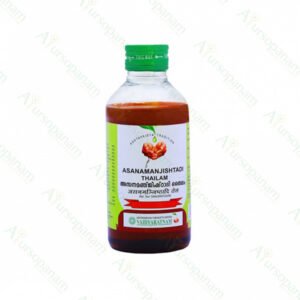

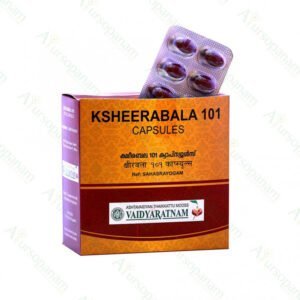


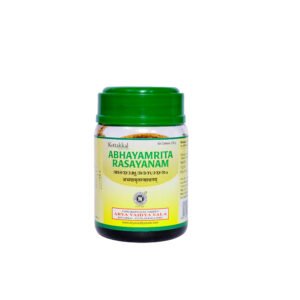


















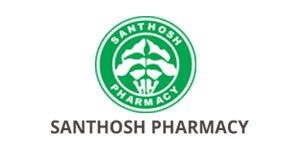

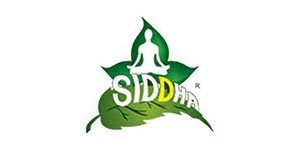











Ratings & Customer Reviews
Reviews
There are no reviews yet.